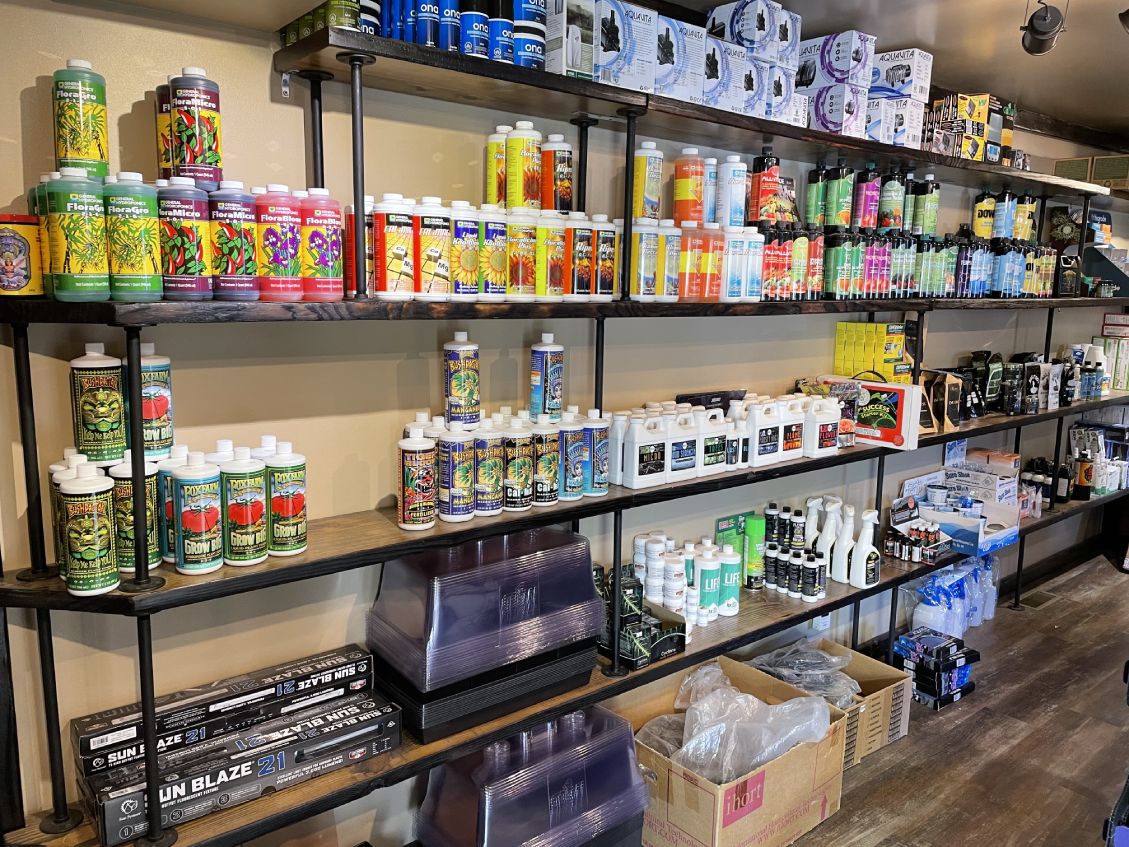The Indoor Earthworm Way: A Game-Changer in Planting Techniques
The Indoor Earthworm Way: A Game-Changer in Planting Techniques
Blog Article
Enhance Your Gardening Abilities With Hydroponics: Exploring Benefits
In the world of gardening, hydroponics has actually become an approach that provides a range of benefits to both skilled enthusiasts and newbies alike. The practice of growing plants without soil might appear non-traditional initially, yet its advantages are worth taking into consideration - The Indoor Earthworm. As we look into the globe of hydroponic gardening, we uncover a huge selection of advantages that not just boost plant growth however likewise offer one-of-a-kind opportunities for individuals seeking to elevate their gardening skills. By exploring the benefits that this cutting-edge technique offers, one can obtain insights into exactly how hydroponics can transform the means we come close to horticulture.
Advantages of Hydroponic Gardening
Hydroponic gardening offers countless benefits because of its efficient use of resources and precise control over plant growth problems. By offering plants with direct accessibility to nutrients dissolved in water, hydroponic systems remove the demand for soil, lowering water use by up to 90% compared to conventional soil-based cultivation. This efficient nutrient delivery approach likewise permits faster plant growth prices and higher yields, making hydroponic gardening an eye-catching option for making best use of restricted space and sources.
Additionally, the regulated atmosphere of hydroponic systems enables growers to maximize aspects such as temperature, ph, and moisture levels, bring about healthier plants with reduced threat of insects and conditions. This specific control over growing conditions not only promotes much faster and more consistent plant development but additionally enables year-round farming no matter external weather.
Faster Plant Development With Hydroponics
Using innovative nutrient distribution systems, hydroponic horticulture assists in increased plant growth prices compared to standard soil-based cultivation approaches. In hydroponic systems, plants have straight access to crucial nutrients dissolved in water, permitting for optimal absorption without the requirement to use up power developing extensive root systems to look for nutrients in the soil. This effective nutrient distribution device enables plants to redirect their energy towards durable vegetative development and prolific fruiting or flowering.
Moreover, the controlled atmosphere in hydroponic setups guarantees that plants obtain the optimal conditions for growth consistently. Elements such as temperature level, humidity, light, and pH degrees can be meticulously kept track of and adjusted to develop the optimal expanding atmosphere for each plant variety. By eliminating the irregularity existing in soil-based horticulture, hydroponic systems offer plants with a steady and positive setting that optimizes their growth possibility.

Water Preservation Conveniences
Hydroponic horticulture uses up to 90% less water contrasted to typical soil-based horticulture approaches. In hydroponics, the nutrient service is delivered directly to the plant origins, making sure optimum water uptake and lowering water loss.
Moreover, hydroponic systems permit for specific control over water use, with the capability to keep track of and readjust nutrient degrees based upon plant needs. This targeted method avoids overwatering, an usual problem in soil-based horticulture, more adding to water conservation initiatives. By optimizing water performance and lessening waste, hydroponic gardening emerges as a sustainable and environment-friendly alternative for people seeking to decrease their water consumption in horticulture practices.
Year-Round Plant Farming

By managing factors such as light, nutrient, and temperature level levels, hydroponic systems make it possible for plants to grow no matter outside weather problems. This constant environment enables for continuous plant development and harvest, supplying a trustworthy supply of fresh produce even in the dead of winter months.
Moreover, the ability to grow plants year-round in hydroponic systems opens up possibilities for cultivators to try out a bigger range of crops, expand their growing periods, and boost general productivity. This adaptability and reliability make year-round plant farming in hydroponics a useful device for both hobbyists and business growers wanting to optimize their gardening efforts.
Enhancing Gardening Abilities Through Hydroponics
Developing effectiveness in hydroponics can encourage gardeners with a much deeper read the article understanding of plant cultivation methods and boost their general horticulture skills. Hydroponic systems supply a regulated environment where garden enthusiasts can very closely keep track of and change variables such as nutrient degrees, pH equilibrium, and lighting conditions to optimize plant growth. By grasping these components, gardeners can adjust their abilities and expertise, resulting in Click Here more effective harvests and much healthier plants.
In addition, hydroponic gardening challenges conventional concepts of soil-based growing, encouraging gardeners to assume outside package and trying out cutting-edge growing techniques. This testing can cultivate creative thinking and problem-solving skills, as gardeners find out to adjust and troubleshoot issues distinct to hydroponic systems. Furthermore, the efficiency of hydroponic setups, such as vertical yards or nutrient film techniques, can instruct gardeners how to take full advantage of area and sources successfully.
Final Thought
Finally, hydroponic gardening supplies many benefits such as faster plant development, water preservation, and year-round farming. By discovering the benefits of hydroponics, individuals can enhance their horticulture abilities and accomplish successful plant development. Consider incorporating hydroponic strategies into your gardening techniques to make best use of effectiveness and productivity in your garden.
As we delve right into the world of hydroponic gardening, we reveal a myriad of benefits that not just boost plant development however also give special opportunities for people looking to raise their gardening abilities.Using advanced nutrient shipment systems, hydroponic gardening promotes accelerated plant development rates compared to traditional soil-based growing methods. By getting rid of the variability existing in soil-based gardening, hydroponic systems give plants with a stable and desirable setting that optimizes their growth possibility.
Enhancing the sustainability and performance of horticulture practices, year-round plant growing in hydroponic systems supplies a trusted and constant approach for cultivating a selection of crops regardless of seasonal limitations. The Indoor Earthworm.In verdict, hydroponic gardening provides various benefits such as faster plant development, water preservation, and year-round farming
Report this page